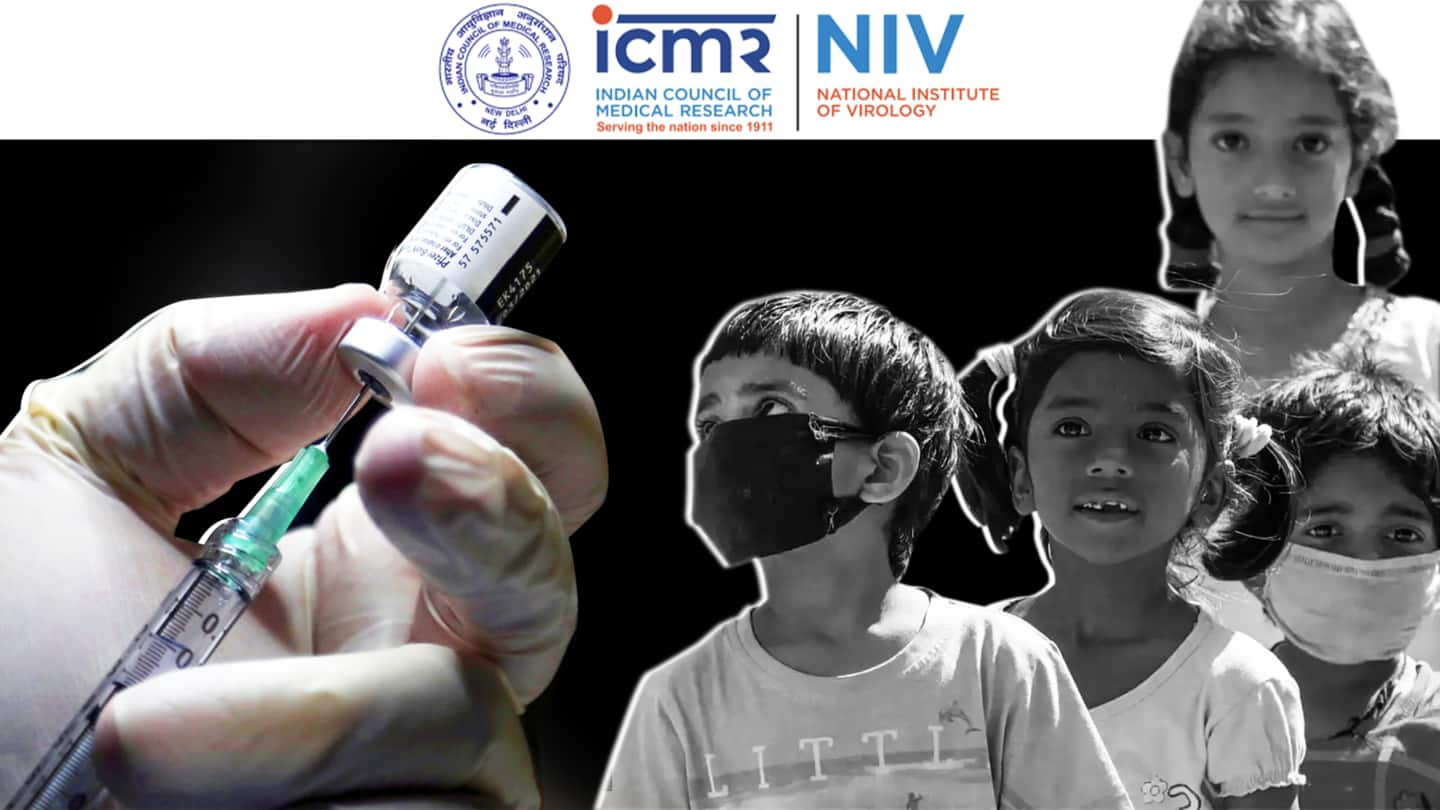
COVID-19 vaccine for children likely by September, says ICMR-NIV chief
What's the story
India will likely have a COVID-19 vaccine for children by next month, Dr. Priya Abraham said in an interview.
Abraham is the chief of the Indian Council of Medical Research's (ICMR) National Institute of Virology (NIV, Pune).
At least two indigenous coronavirus vaccines are undergoing or have undergone trials in children in India.
Here are more details on this.
Quote
'Trial results will be available very soon'
"Hopefully, the results (of the trials) are going to be available very soon. The results will be presented to the regulators. So, by September or just after it, we may have COVID-19 vaccines for children," Dr. Abraham told India Science, an OTT channel of the Science and Technology department.
Union Health Minister Mansukh Mandaviya had earlier projected an August timeline for the feat.
Vaccine
COVAXIN undergoing late-stage trials in children
COVAXIN, India's first and so far the only indigenous coronavirus vaccine, is currently undergoing phase two and three trials in children aged 2-18 years.
It has been co-developed by the ICMR and Hyderabad-based vaccine maker Bharat Biotech.
It is one of the three main jabs being used in India currently, the others being Oxford-AstraZeneca's Covishield and the Russian vaccine Sputnik V.
Information
Zydus Cadila's vaccine can be another option
Zydus Cadila's ZyCoV-D shall be another vaccine that can be administered to children, as and when approved. The Gujarat-based firm had applied for an emergency use authorization last month and officials say an approval of the jab is expected soon.
Options
What are the other options for India?
Further, Pfizer's vaccine is already approved for use in children in several foreign countries, implying when India approves it, that could be another option for children here.
India has also approved Moderna's COVID-19 vaccine, which is also accepted for use in children in several countries.
However, it remains unclear when these vaccines would be available in India.
Significance
Why is it important to vaccinate children?
A study published in the medical journal The Lancet found that living with children aged 11-17 years can increase the risk of coronavirus infection by as much as 18-30%, flagging vulnerability of the older population.
Separately, vaccinating children and adolescents will help in the process of reopening schools, especially at a time when there are concerns over an impending surge in infections.
Vaccination
How is India's vaccination drive going?
India began its coronavirus vaccination program this January and has since administered over 55 crore doses.
More than 31% of Indians have received at least one vaccine shot while about 9% have been fully inoculated.
The Indian government aims to vaccinate all adults (nearly one billion) by the end of this year. However, several states continue to flag a shortage of vaccines.
Situation
India's coronavirus situation
India had faced a devastating coronavirus outbreak earlier this year, reporting lakhs of cases and thousands of deaths every day.
The situation has since improved, with daily cases in the country hovering around 40,000 for the past several weeks.
However, experts warn that a third wave of the pandemic could hit India as early as this month.